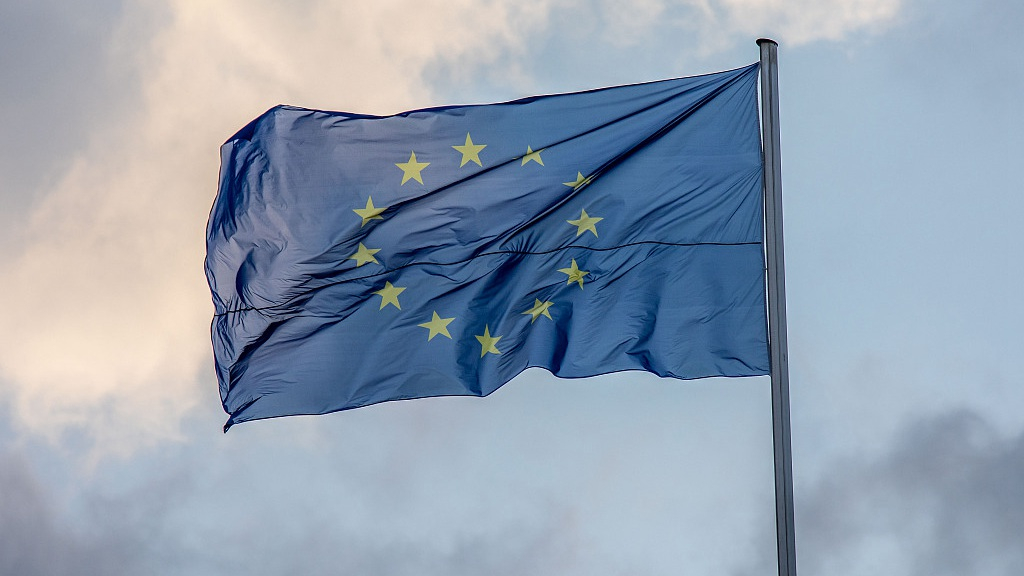
(Photo: CGTN)
In the face of multiple internal and external challenges, the ongoing European Parliament election is bound to become one of the most important electoral contests in EU history.
Compared with the last election in 2014, political dynamics have changed considerably in the EU, with Brexit and the rise of populist parties in member states being some of the most noticeable examples. Undoubtedly, these changing political dynamics are set to factor into this year's election in which three changes could be expected.
First of all, the mainstream two-party dominated structure is likely to be undermined. For a long time, the center-right European People's Party (EPP) and the center-left Progressive Alliance of Socialists and Democrats (S & D) have been able to maintain their strength as the top two groups in the Parliament.
The two mainstream groups on the left and right have been able to form a pro-EU majority that ensures the coherence of the Parliament on most of EU policies. Yet this majority status is very likely to be lost for the first time in history. In the recent national elections in Germany, Sweden, France, The Netherlands and Italy, mainstream parties on the left and right have lost ground to more extremist parties.
This trend could also be observed in the European elections. In particular, the S&D group is predicted to experience a historical setback as a result of the declining support for German SPD and the defeat of French Socialist party in the last national election. With the suspension of Viktor Orbán's Fidesz Party from the Pan-European EPP family, the EPP group is likely to lose more seats due to internal frictions.
The second change is the continued rise of populist parties. In many EU member states, the political vacuum left by the decline of mainstream parties has been filled quickly by populists. Populist parties have taken power in Greece, Hungary, Poland, Czech Republic, Italy and Austria, or become the largest opposition parties in countries like Germany. This trend is set to continue in the 2019 European Parliament election.
As the European economy recovers, social security issues like migration have surpassed economic and employment issues to become the major concern for European voters. Consequently, the far-right populist parties are poised to win more seats due to their clear and firm position on migration. It is estimated that euro-sceptic parties might secure as much as one-third of the seats in the new Parliament.
Last but not least, the next Parliament is expected to witness the emergence of new political forces, notably France's La République En Marche (LREM), the UK's Brexit Party and Italy's populist parties (Lega Nord & 5Star Movement).
LREM has already signaled its intention to join the Alliance of Liberals and Democrats for Europe (ALDE), making it the third largest group and a kingmaker that exercises substantial power in the new Parliament.
Salvini's Lega Nord has joined the former Europe of Nations and Freedom (ENF) to form a new group named "European Alliance of Peoples and Nations," while the Brexit Party and 5Star Movement decide to join forces in the campaign.
The final shape of the incoming European Parliament remains to be seen, yet the new political forces will certainly lead to the fragmentation and reconfiguration of European politics.
The expected changes have implications for both the power balance inside the European Parliament and the broader direction of European integration.
A changed power balance means there could be more coalition possibilities in European Parliament politics, which might affect the efficiency of EU legislation. More importantly, it gives more room for the populist parties to assert their influence.
Due to ideological differences, it is difficult for populist parties to form a coherent force, the new Parliament would thus remain largely pro-EU. Yet if the mainstream parties could not reach consensus on specific policy issues, the populist forces might build a "tactic coalition" to challenge EU legislation and policies.
This is not necessarily bad for the future of Europe. After the Brexit referendum, most European populist parties have finetuned their eurosceptic standing, asking not to leave the EU, but to reform the EU. It is the time for mainstream parties to also learn the lesson: Europe has to change to meet the challenges ahead.


